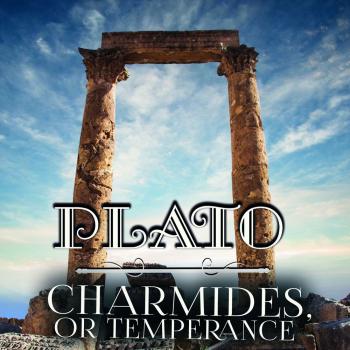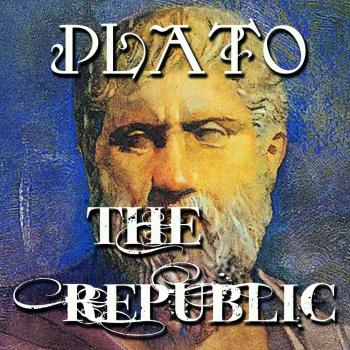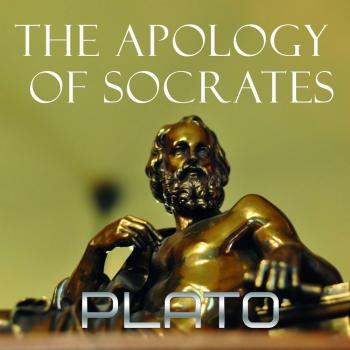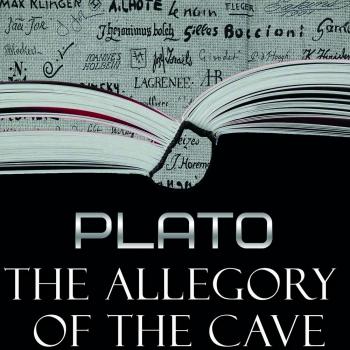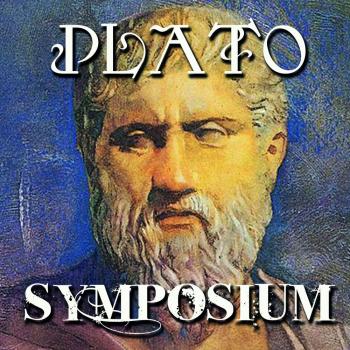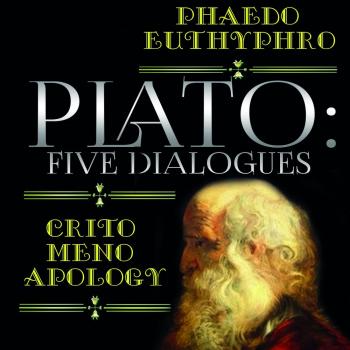Мультимедийное издательство Стрельбицкого
Все книги издательства Мультимедийное издательство СтрельбицкогоВирус 2020
Опасность сдирает маски со всех.Война, как высшее проявление опасности, не просто сдирает маски с людей, она обнажает человеческую душу и вынуждает ее, душу, показать себя миру во всей своей красе.Навряд ли бы вы захотели воевать в одном окопе с трусом, лицемером, предателем…– потому их и расстреливали в первую очередь.Женщин в окопы не пускают. Не то чтобы это не их дело, но их сущность (материнство, продолжение рода) не дает им принимать правильные решения в критической ситуации, поэтому в армии они выполняли вспомогательную роль, также их и не расстреливали, как трусов и паникеров, ну и в управление государством тоже не пускают. Немногие яркие представители, как управленцев, так и героев войны, это исключение подчеркивающее правило.Но! Войны бывают разные. Мы все ждали ядерную, а она пришла к нам совсем другая. Совершенно очевидно, что последняя война началась и закончилась из-за женщин (любви) давным-давно.Все остальные войны начинаются только из корысти. Золото, рабы, ресурсы. Значит и вирусная война, мировая война, началась из-за вышеперечисленного. Девиз первых юристов гласит: Когда совершено преступление – ищи того, кому это выгодно, и ты найдешь преступника.Я не думаю, что думающей части этого мира будет тяжело понять, кому происходящее выгодно.Потому заострять на этом внимание не буду. Ясно одно – мы не мишень. Мишень – те страны, в которых резко, из ниоткуда возникают эпицентры эпидемии.И, думаю, что арсенал вирусов у них широк. С одним видом патронов войны не начинают.К нам же доходят отголоски в виде путешественников, подстреленных случайно на территории, где ведутся военные действия.Мы не экономическая сверхдержава. Нами легко управлять – экономика привязана к чужеродной валюте и полная зависимость от продажи ресурсов.Но очень сложно оказывать влияние на тех, кто самодостаточен, на тех, у кого в каждой подворотне завод или фабрика (по производству! Не путать с обслугой!), ведь экономическая безопасность это и есть Производство в каждом дворе и отсутствие привязки к чужеродной валюте (доллар США).Но их можно победить оружием. В данной ситуации вирусным. Мы, по крайней мере пока, сейчас зрители.Но под шумок войны каждый правитель в тех странах, где экономика зависима, решает либо свои проблемы, либо проблемы хозяев, которые поставили его на управление…
Горячий снег Килиманджаро
«В какой-то момент, когда стало чуть полегче, он вдруг понял, что похож на курицу, которая, склоняясь над деревянным корытцем и вытягивая шею, погружает клюв в воду, а глотнув, обязательно потом запрокидывает головку назад, устремляя красновато-оранжевые глазки в небо. Так подсказала ему память детства, когда он приезжал в село к бабушке и дедушке, пока они были живы, и по их просторному двору вольготно расхаживали пеструшки – в Киеве на асфальте их, конечно, не увидишь. Он уловил это сходство потому, что, стараясь поймать воздух и как можно лучше насытить, наполнить им легкие, сразу после вдоха откидывался головой назад, зарываясь затылком в белую глубь не очень-то удобной, чересчур большой больничной подушки. Он никогда не любил большие деревенские, как на картинах старых мастеров, подушки, только маленькие, европейского, можно сказать, образца, под которые так славно поднырнуть рукой – засыпаешь на собственном предплечье».
Секс, любовь и одиночество
У Виктории, хозяйки салона красоты, есть всё, что нужно для счастья: прекрасные дети, замечательные друзья, любимая работа. Не хватает только… любимого мужчины. За восемь лет, которые прошли после развода с мужем, у неё не было ни одного свидания. Устав от одиночества, Виктория отправляется на поиски суженого в Интернет. Она мечтает встретить прекрасного мачо, но вместо этого попадает в разные смешные (и не очень) ситуации. В конце концов, героиня начинает понимать, кто ей по-настоящему нужен.
Charmides
The Charmides (Greek: Χαρμίδης) is a dialogue of Plato, in which Socrates engages a handsome and popular boy in a conversation about the meaning of sophrosyne, a Greek word usually translated into English as «temperance», «self-control», or «restraint». As is typical with Platonic early dialogues, the two never arrive at a completely satisfactory definition, but the discussion nevertheless raises many important points. Famous dialogues of Plato – Early: Apology, Charmides, Crito, Euthyphro, Hippias MinorIon, Laches, Lysis; Transitional and middle: Cratylus, Euthydemus, Gorgias, Menexenus, Meno, Phaedo, Protagoras, Symposium; Later middle: Parmenides, Phaedrus, Republic, Theaetetus; Late: Critias, Laws, Philebus, Sophist, Statesman, Timaeus.
The Republic
he Republic (Greek: Πολιτεία, Politeia; Latin: Res Publica) is a Socratic dialogue, written by Plato around 375 BC, concerning justice (δικαιοσύνη), the order and character of the just city-state, and the just man. It is Plato's best-known work, and has proven to be one of the world's most influential works of philosophy and political theory, both intellectually and historically. In the dialogue, Socrates talks with various Athenians and foreigners about the meaning of justice and whether the just man is happier than the unjust man. They consider the natures of existing regimes and then propose a series of different, hypothetical cities in comparison, culminating in Kallipolis (Καλλίπολις), a city-state ruled by a philosopher king. They also discuss the theory of forms, the immortality of the soul, and the role of the philosopher and of poetry in society. The dialogue's setting seems to be during the Peloponnesian War. The Republic is generally placed in the middle period of Plato's dialogues—that is, it is believed to be written after the early period dialogues but before the late period dialogues. However, the distinction of this group from the early dialogues is not as clear as the distinction of the late dialogues from all the others. Nonetheless, Ritter, Arnim, and Baron—with their separate methodologies—all agreed that the Republic was well distinguished, along with Parmenides, Phaedrus and Theaetetus.
The Apology of Socrates
The Apology of Socrates was written by Plato. In fact, it’s a defensive speech of Socrates that he said in a court noted down by Plato. The main subject of the speech is a problem of the evil. Socrates insists that neither death nor death sentence is evil. We shouldn’t be afraid of the death because we don’t know anything about it. Socrates proved that the death shouldn’t be taken as the evil with the following dilemma: the death is either a peace or a transit from this life to the next. Both can’t be called evil. Consequently, the death shouldn’t be treated as evil.
The Allegory of the Cave
The Allegory of the Cave, or Plato's Cave, was presented by the Greek philosopher Plato in his work Republic (514a–520a) to compare «the effect of education (παιδεία) and the lack of it on our nature». It is written as a dialogue between Plato's brother Glaucon and his mentor Socrates, narrated by the latter. The allegory is presented after the analogy of the sun (508b–509c) and the analogy of the divided line (509d–511e). All three are characterized in relation to dialectic at the end of Books VII and VIII (531d–534e). Plato has Socrates describe a group of people who have lived chained to the wall of a cave all of their lives, facing a blank wall. The people watch shadows projected on the wall from objects passing in front of a fire behind them, and give names to these shadows. The shadows are the prisoners' reality.
Symposium
The Symposium (Ancient Greek: Συμπόσιον, Sympósion [sympósi̯on]) is a philosophical text by Plato dated c. 385–370 BC. It depicts a friendly contest of extemporaneous speeches given by a group of notable men attending a banquet. The men include the philosopher Socrates, the general and political figure Alcibiades, and the comic playwright Aristophanes. The speeches are to be given in praise of Eros, the god of love and desire. In the Symposium, Eros is recognized both as erotic love and as a phenomenon capable of inspiring courage, valor, great deeds and works, and vanquishing man's natural fear of death. It is seen as transcending its earthly origins and attaining spiritual heights. This extraordinary elevation of the concept of love raises a question of whether some of the most extreme extents of meaning might be intended as humor or farce. Eros is almost always translated as «love», and the English word has its own varieties and ambiguities that provide additional challenges to the effort to understand the Eros of ancient Athens. The event depicted in the Symposium is a banquet attended by a group of men, who have come to the symposium, which was, in ancient Greece, a traditional part of the same banquet that took place after the meal, when drinking for pleasure was accompanied by music, dancing, recitals, or conversation. The setting means that the participants will be drinking wine, meaning that the men might be induced to say things they wouldn't say elsewhere or when sober. They might speak more frankly, or take more risks, or else be prone to hubris—they might even be inspired to make speeches that are particularly heartfelt and noble. The host has challenged the men to deliver, each, in turn, an encomium—a speech in praise of Love (Eros). Though other participants comply with this challenge, Socrates notably refuses to participate in such an act of praise and instead takes a very different approach to the topic. The party takes place at the house of the tragedian Agathon in Athens. This dialogue is one of Plato's major works, and is appreciated for both its philosophical content and its literary qualities.
Plato: Five Dialogues: Euthyphro, Apology, Crito, Meno, Phaedo
Plato was a philosopher in Classical Greece and the founder of the Academy in Athens, the first institution of higher learning in the Western world. He is widely considered the most pivotal figure in the development of philosophy, especially the Western tradition. Unlike nearly all of Plato's philosophical contemporaries, Plato's entire body of work is believed to have survived intact for over 2,400 years. The works which are most often assigned to Plato's early years are all considered to be Socratic dialogues, written from 399 to 387. Plato's Middle dialogues were writtten from 387 to 361 and Plato's latter dialogues were written in the period between 361 and his death in 347. This anthology volume includes Five Dialogues of Plato; Euthyphro – Apology – Crito – Phaedo – Meno. Apology, Crito, and Phaedo are dialogues in which Plato details the Philosopher Socrates' last days. Meno is a Socratic dialogue that attempts to determine the definition of virtue in general, rather than particular virtues, such as justice or temperance. Plato's Euthyphro is set in the weeks leading up to Socrate's trial, it features Socrates and Euthyphro, a religious expert who attempts to define piety or holiness. Plato's works are often textbook required reading for courses in politics & social sciences, philosophy, humanities, and Greek & Roman studies. This anthology volume includes many of Plato's most popular and studied works. The dialogues of Plato – Early, Transitional and middle, Later middle, Phaedo, Later middle, Late, Of doubtful authenticity.
Phaedo
Phædo or Phaedo (Greek: Φαίδων, Phaidōn), also known to ancient readers as On The Soul, is one of the best-known dialogues of Plato's middle period, along with the Republic and the Symposium. The philosophical subject of the dialogue is the immortality of the soul. It is set in the last hours prior to the death of Socrates, and is Plato's fourth and last dialogue to detail the philosopher's final days, following Euthyphro, Apology, and Crito. One of the main themes in the Phaedo is the idea that the soul is immortal. In the dialogue, Socrates discusses the nature of the afterlife on his last day before being executed by drinking hemlock. Socrates has been imprisoned and sentenced to death by an Athenian jury for not believing in the gods of the state (though some scholars think it was more for his support of «philosopher kings» as opposed to democracy) and for corrupting the youth of the city. By engaging in dialectic with a group of Socrates' friends, including the two Thebans, Cebes, and Simmias, Socrates explores various arguments for the soul's immortality in order to show that there is an afterlife in which the soul will dwell following death. Phaedo tells the story that following the discussion, he and the others were there to witness the death of Socrates. The Phaedo was first translated into Latin from Greek by Henry Aristippus in 1160. Today, it is generally considered one of Plato's great works. The dialogues of Plato – Early, Transitional and middle, Later middle, Phaedo, Later middle, Late, Of doubtful authenticity.



